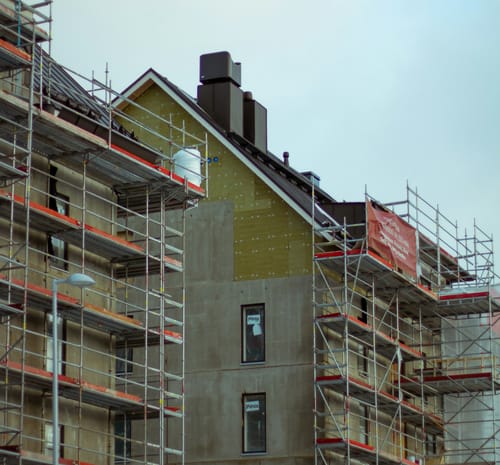If you open any site related to Cyprus real estate today, you will be flooded with multiple offers from agencies, developers, or turnkey providers. Some just resell the properties, some build and sell firsthand, and some buy, repair, and then resell them. All these properties in the pictures can be very similar; hence, the buyer can be overwhelmed by all the offers he sees, and cunning agents can turn him in the direction they want.
If you are a savvy investor, your decision to choose one property over another should be driven by pure math instead of emotions. However, to assess the property and its long-term cost correctly, we need to understand its underlying value, which is dependent on how, when, and by whom this property was built. Let's divide the properties for sale into three big categories and consider the pros and cons of buying each type.
Property for Rehab
Here, we are looking at apartments or houses built some long time ago that were used (or probably abused) by one or multiple tenants who didn't take good care of these properties. These properties are usually at some kind of physical distress and thus offered at a much lower price than their market price (according to location and size), but it will require (probably significant) investments in repairing this property. The main problem with the Rehab is that you can hardly predict its final cost and time frames - sometimes it's just like peeling the onion - the more layers you peel off, the more you cry. Though if repaired properly you can force the property appreciation (to increase its value) in quite a short term. Buying such property, though, can make much sense if you are 1. good at repairing (or know someone excellent and cheap), 2. going to resell this property after repair for a much higher price (fix-and-flip strategy). So, if success for you is a process of problem-solving, then probably give it a shot.
Another important point worth considering, though, is the energy efficiency class. Higher energy efficiency buildings will reduce your energy bills, provide more comfort, and have less environmental impact. It's only in recent years that developers have started to comply with world-recognized energy efficiency and saving standards. You can't change this class with any rehab or repair unless you significantly change the whole construction. The energy saving difference between B (old buildings' class) and A (new buildings) ratings can be around 20-40%, which is huge!
| Pros | Cons |
|---|---|
|
|
Property after Rehab
Suppose you don't like the idea of rehabbing the property by yourself but like the idea of the low price. In that case, you can look at turnkey providers who will do this process for you - they will buy the property, fix everything required, and usually also add force appreciation to increase its value, like adding some cool features or amenities if it's a residential complex. The price will definitely be higher than in the first option, but it will still be lower than newly developed properties. Since it's not first-hand property you can also reduce VAT from the price equation. It can be a good option for someone trying to generate maximum cash flow by his investment since the rent price will not defer much from similar house straight from the developer. However, since the foundation of this property can be old and may not meet the high building standards, you will likely get a lower appreciation rate for this property over the years. Keep in mind (and in your budget), though, the problems with old buildings that can surface from time to time - it's like a bear in the woods - you don't see it, but it's there.
| Pros | Cons |
|---|---|
|
|
New Developed Property
The last option we will look at is the property straight from its developer. These properties are usually more expensive. However, you will get a higher quality product because of the rise in construction standards in recent years, including the higher energy efficiency class. It means also your appreciation rate on this property will be higher over the years. Investing in such properties will require more cash from you, but if you play a long game, it's probably worth it. If you choose a good developer, you will get a high-quality property that you can buy and hold for a long time. Then, if you adhere to Warren Buffett's principle that the ideal holding period is forever, this property can be suitable for your long-term investments.
| Pros | Cons |
|---|---|
|
|
